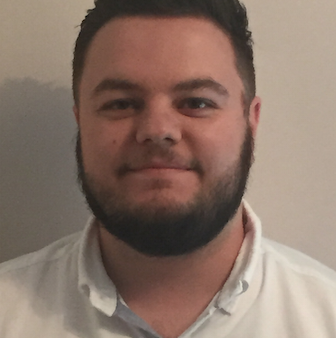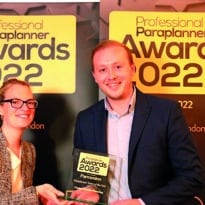Professional Paraplanner editor Rob Kingsbury talks to Scott Daniels, director of the PLUS Group, about becoming a paraplanner and spotting the opportunity in the market to set up a paraplanning and PA/Admin outsourcing service.
Scott Daniels, director of the PLUS Group (pictured), has built a company that employs 17 paraplanners, four PA/Administrators and has 30 staff in total. Yet two years ago the company didn’t exist.
The rapid growth of the business has been possible because Scott and his fellow director Mark Lamb saw an opening with a FTSE 100 listed financial advice group and set up a full outsourced paraplanning service for that company. Since launch PLUS has worked with 300 advisers and at any one time will be serving 100 partners from the company, with on average 400 reports in the pipeline, Scott says.
Scott began his career in financial services when studying for his degree in Business and Finance from Liverpool John Moores University. To help fund his education he worked part-time for Pheonix Life and Pensions. “I was working on the phones dealing with enquiries from financial adviser firms,” he says. Clearly seeing financial services as his career goal, at the same time as studying for his degree and working he was taking the CF1 and CF2 exams.
After graduating in 2010, he worked for Deutsche Bank and then for Towry, before securing a trainee paraplanner role for one of the firms the PLUS Group now serves. Within six months of starting at the company he had been promoted to running the department with five paraplanners and looking after nine advisers.
Scott says: “While I was there I could see that there was a growing demand for paraplanners and that paraplanning was being recognised as a valued profession in its own right, rather than being seen as just a stepping stone to being a financial adviser, which is how I think it was mainly seen before then.”
Set up and growing the business
PLUS was set up in October 2013, by Scott and Mark, with three areas of operation, working solely for the one large advisory company. The first area was Marketing and Client Servicing, which was established by Mark in 2012 on the back of RDR, to help partner firms segment their clients and service them in accordance with RDR principles. This created a boost in demand for paraplanning services, Scott’s area of expertise, as advisers wrote to and visited clients to explain the changes, which generated more business. This in turn led to the PA and Administration side of PLUS being set up, to provide further outsourced support to firms.
“We’ve gone from strength and now we offer a full outsourcing service. Our marketing and client service team help advisers generate more business, which increases the cases that need to be written by paraplanners and that creates work for the PA and admin side of a business.
“In October 2013 there was just the two of us. Now we have with 17 paraplanners and four PA/administrators. By this time next year we are looking to have close to 50 paraplanners working for us,” Scott says.
That is a tall order given the supply side situation in the paraplanner market at the moment. Scott concurs but says he has two projects he is working on to bring in the number of paraplanners he needs. First is the creation of a Paraplanning Academy; second is a graduate training scheme.
“I did a Business and Finance degree and I worked at Pheonix, so I had a pretty good idea about the industry but I’d never heard about paraplanning or knew what the paraplanner role was until I’d been working in the industry. I think there are a lot of people taking economics and accounting degrees who would fit the paraplanner role perfectly. We need to get the message out there that this opportunity exists.”
PLUS is currently looking for paraplanners at Diploma level or as close to it as possible, he says, with the firm refunding the cost of exams when passed successfully and also providing learning materials and access to face-to-face training if needed. What’s more, he leads by example, having attained Chartered and fellowship status in 2015.
“It’s important that we find people of the quality and experience we need.
“My feeling is that paraplanners should be at least as qualified as the advisers that they are serving. I don’t see how paraplanners can help advisers if they don’t understand the type of business they are writing. So we are supporting paraplanners to move up the qualification ladder and achieve Chartered status.”
Scott sees a huge market opening up for paraplanning and consequently, a range of opportunities for paraplanners within the Group. “We’ve grown rapidly from two to 30 staff, which means as we grow further there are going to be team leaders and other levels of management that we will need to put in place. If we open up regional offices there will be opportunities there also. There’s no knowing where we will be in a few years time.”
While the company is based in Liverpool, the majority of the paraplanners who work for it do so remotely from all over the country. “Location is not an issue,” Scott says.





























